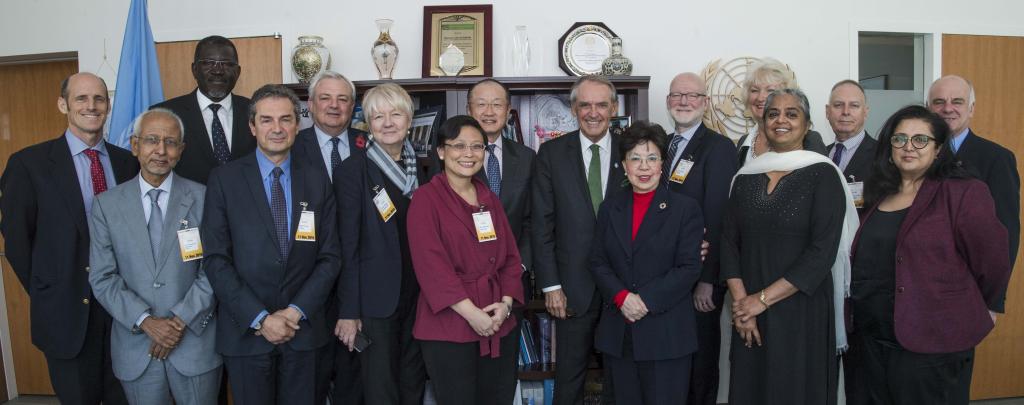The Global Health Crises Task Force was established by the Secretary-General to monitor, coordinate and support the follow-up and implementation of the recommendations of the High-level Panel on the Global Response to Health Crises. GHC Director Professor Ilona Kickbusch is part of the Task Force, which released its first quarterly report for July-September 2016 providing advice on nine priority areas at all levels.
At the global level, the Task Force calls for the strengthening of the UN system capacity during health emergencies. Developments in this regard include the establishment of the WHO Health Emergencies Programme and the UNICEF Health Emergencies Preparedness Initiative. However, the report warns that inadequate financing can undermine the impact of emergency response programmes and activities.
At the extraordinary WHO Financing Dialogue session, convened on 31 October 2016, it was stressed that the Health Emergencies Programme is the Organization’s most significantly underfunded programme: on the basis of current projections, it will not have sufficient funds to implement its work beyond the second quarter of 2017. Director-General Margaret Chan proposed a 10%-increase in assessed contributions in order to ensure the security and stewardship of WHO’s programme budget as a whole. This is in line with the recommendations of the United Nations High-level Panel on the Global Response to Health Crises. The issue will be further discussed at the upcoming session of the Executive Board in January 2017.
The Task Force also addressed the importance of ensuring that resilience and health crises are a priority on global political agendas. The UN General Assembly has not yet taken a decision on the proposals of the Panel to form a council of member states and convene a summit on global public health crises in 2018. However, emergency management has been a focus of discussions in various multilateral settings, and will continue to do so next year: among others, the priorities of the 2017 G20 Summit under German Presidency recognise the crucial importance of safeguarding against health crises to ensure sustainable economic growth and to be fit for the future.
The report further underlines the importance of regional arrangements at technical, bioethical and political level. WHO has a role to play in supporting regional and sub-regional organisations to strengthen capacities to monitor, prevent and respond to health crises. The facilitation of simulation exercises for intersectoral health crisis responses is also crucial, especially in border areas.
At the national level, the accent was put on health systems. The International Health Regulations (IHR) are considered to be critical to strengthening health systems strategically. The new WHO assessment framework considers the attainment of core capacities as an ongoing process, instead of a one-time exercise, and is therefore characterised by the Task Force as an important “paradigm shift”. WHO’s six Regional Committees considered a draft global IHR implementation plan in the autumn of 2016, which will be discussed at the Executive Board in January 2017. Other dimensions include building a strong health workforce, universal health coverage, and integrating communities in efforts for crisis prevention and management.
Further observations address the gender dimension of global health crises in recognition of the disproportionate burden on women in the health sector during health crises; and the need for focused research and innovation for the development of diagnostics, therapeutics and preventive measures, as well as better data sharing and transparency.
More information can be found in the Global Health Crises Task Force’s First Quarterly Report, available on the Task Force’s website along with related reports and events.


